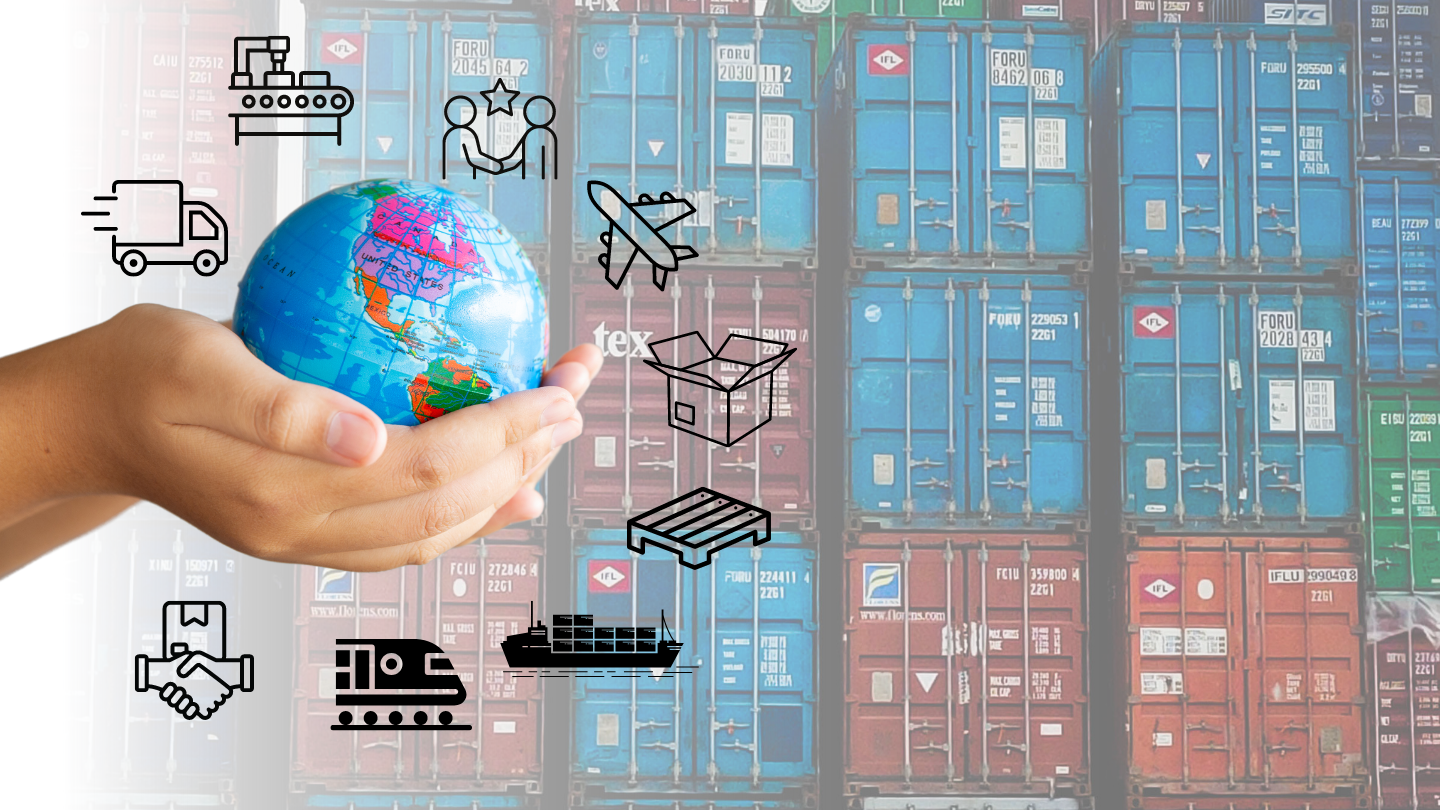
Today’s business landscape is rapidly evolving, and perhaps no area is more integral to this change than supply chain management. A sustainable supply chain has gone from an optional strategy for the socially conscious company to a non-negotiable aspect of any robust, forward-thinking business. From global climate accords to consumer pressure, the push towards a responsible green supply chain has never been stronger or more crucial.
What Is a Sustainable Supply Chain?
The supply chain represents complex activities within a company. A sustainable supply chain focuses on integrating environmentally and ethically sound choices into every aspect of the supply and production process. By accounting for environmental impacts, labour conditions, ethical sourcing, and waste management, a sustainable supply chain aims to create a net positive for people and the planet, while still meeting commercial needs.
Sustainability, as defined in the 1984 Broadbent Report, is the ability to meet the needs of the present without compromising the ability of future generations to meet their own needs. This foundational concept underpins our approach to building a resilient and responsible supply chain. By adopting this ethos, businesses can ensure that their operations do not just serve the needs of the current marketplace and community but do so in a way that preserves resources, promotes fairness, and ensures well-being for future stakeholders.
Principle of Sustainable Supply Chain Management
Sustainable supply chain management is built upon three pillars:
- Environment: Minimizing the environmental footprint across operations, from sourcing to delivery.
- Social: Ensuring that labor practices are fair and ethical at all stages of the supply chain.
- Economic: Overseeing the business model to ensure that it’s sustainable in the long run from a financial standpoint.
Key Components of a Sustainable Supply Chain
A truly sustainable supply chain involves several key components:
- Eco-friendly sourcing: Utilizing materials and resources that are both renewable and non-harmful to the environment.
- Responsible manufacturing: Adopting processes that reduce waste, energy use, and environmental pollution.
- Ethical labour practices: Committing to fair wages, safe working conditions, and the elimination of child labour.
- Green logistics: Minimizing the impact of transportation and distribution on the environment through efficiency and renewable solutions.
Challenges and Opportunities
Creating a sustainable supply chain comes with considerable challenges but also unprecedented opportunities. Supply chain leaders are at the forefront of a movement that is redefining what it means to be a successful business.
Changing Mindset From Immediate Profitability To Long-Term Viability
In the pursuit of sustainability, a fundamental shift in mindset from immediate profitability to long-term viability is essential. This transformation requires leaders and organizations to prioritize the future’s welfare over short-term gains, recognizing that sustainable practices are not just ethical but also beneficial for the long-term success and resilience of the business. It is a proactive approach that supports not only environmental preservation but also strengthens community relations and enhances brand reputation. By embedding sustainability into the core of business strategies, companies can unlock innovative solutions that drive both economic and social value, ensuring their longevity and relevance in a rapidly changing world.
Overcoming Resistance to Change
One of the most significant hurdles in implementing sustainable supply chain practices is the resistance to change. This resistance can come from various stakeholders, such as suppliers, employees, and, in some cases, consumers. Validating the need for change through education and evidence-based arguments is essential to overcome this resistance.
Innovating for a Greener Future
Fortunately, the adoption of sustainable practices has the potential to foster a culture of innovation. Implementing new, environmentally friendly technologies can lead to cost reductions, increased efficiency, and the development of new markets and opportunities.
Regulation and Compliance
Navigating the evolving landscape of environmental regulations and compliance can also be a complex task. However, businesses that stay ahead of the curve by voluntarily adopting sustainable practices often find themselves in a more advantageous position when legislation inevitably catches up with public sentiment.
Benefits of Sustainable Supply Chain Management
The benefits of a sustainable supply chain extend far beyond a good corporate image. Adopting these practices can lead to lower costs, increased customer loyalty, and a more resilient business model.
Lowering Environmental Impact
Reducing energy consumption, carbon emissions, and waste not only benefits the planet but also provides significant opportunities for cost savings and operational efficiency.
Strengthening Customer Relationships
Consumers are increasingly making purchasing decisions based on a company’s environmental and social practices. Implementing a sustainable supply chain can help strengthen customer relationships and build brand loyalty.
Boosting Resilience
Sustainable supply chain practices can lead to a more robust and resilient business model. By diversifying suppliers and operations, businesses can better withstand disruptions due to climate change, geopolitical events, or other unforeseen circumstances.
Employee Engagement, Retention and Attraction
Investing in sustainable supply chain practices can significantly influence employee engagement, retention, and attraction. By demonstrating a commitment to sustainability and ethical practices, businesses not only contribute to a healthier planet but also foster a positive, purpose-driven workplace culture. This commitment resonates with current and potential employees who are increasingly looking for employers that align with their values.
Engagement is enhanced as employees feel part of a collective effort towards a greater good, which in turn, increases job satisfaction and loyalty. Furthermore, businesses that prioritize sustainability tend to attract top talent, as skilled professionals seek out companies with strong environmental credentials. In this way, sustainability becomes a key differentiator in a competitive job market, aiding in the attraction and retention of exceptional talent. This alignment of business practices with employee values not only fortifies the company’s reputation but also builds a resilient and motivated workforce dedicated to driving sustainable success.
Case Studies of Sustainable Supply Chain
Real-world examples serve to illustrate that sustainable supply chain practices are not only aspirational but also achievable. From major corporations to SMEs, a variety of case studies demonstrate the viability and long-term payoffs of sustainable supply chains.
Leading the Charge in Eco-Friendly Logistics
Major logistics companies have implemented initiatives such as electric fleets, optimization algorithms to reduce emissions, and large-scale recycling programs to minimize environmental impacts and pave the way for a carbon-neutral future.
Some fleets have started including electric trucks for deliveries in urban areas, others have implemented renewal natural gas trucks that are practically carbon neutral.
Transforming Production and Sourcing
Manufacturers and producers have re-evaluated their processes, shifting towards renewable energy, implementing closed-loop systems to reduce waste, and prioritizing the sourcing of sustainable materials.
We are also seeing an increase of circular economy that is generating new product ideas, like spent grains cracker or juice made from unwanted vegetables.
Cultivating Ethical Supply Chains
Companies are creating and enforcing strict codes of conduct for their suppliers, leading to improved labor conditions, welfare, and greater transparency in the supply chain.
As this article in Forbes details, improving ethical practices in the supply chain requires improving its visibility. “Supplier relationship management software often uses a supplier survey mechanism to collect information such as critical capabilities and certifications from internal staff and external partners. This allows organizations to easily detect potential risks and monitor the compliance of their suppliers.”
Conclusion
The sustainable supply chain is not just a trend, it’s an imperative. Businesses that integrate these principles into their operations stand to gain numerous benefits, from cost savings to enhanced reputation and resiliency. While the challenges are significant, the opportunities for growth, innovation, and positive impact are equally substantial.
Take Action Today for a Sustainable Tomorrow
Your commitment to sustainable supply chain practices is pivotal. We encourage you to begin this transformation by conducting a thorough assessment of your current operations, identifying areas for improvement, and implementing strategies that promote environmental stewardship and social responsibility.
Reach out to our team for guidance, resources, and support in making this essential transition. The future is in your hands—act today to ensure it is a sustainable one. Together, we have the power to make a meaningful difference for our planet and future generations.
📷 Canva

For further reading:
https://www3.weforum.org/docs/WEF_Net_Zero_Challenge_The_Supply_Chain_Opportunity_2021.pdf







